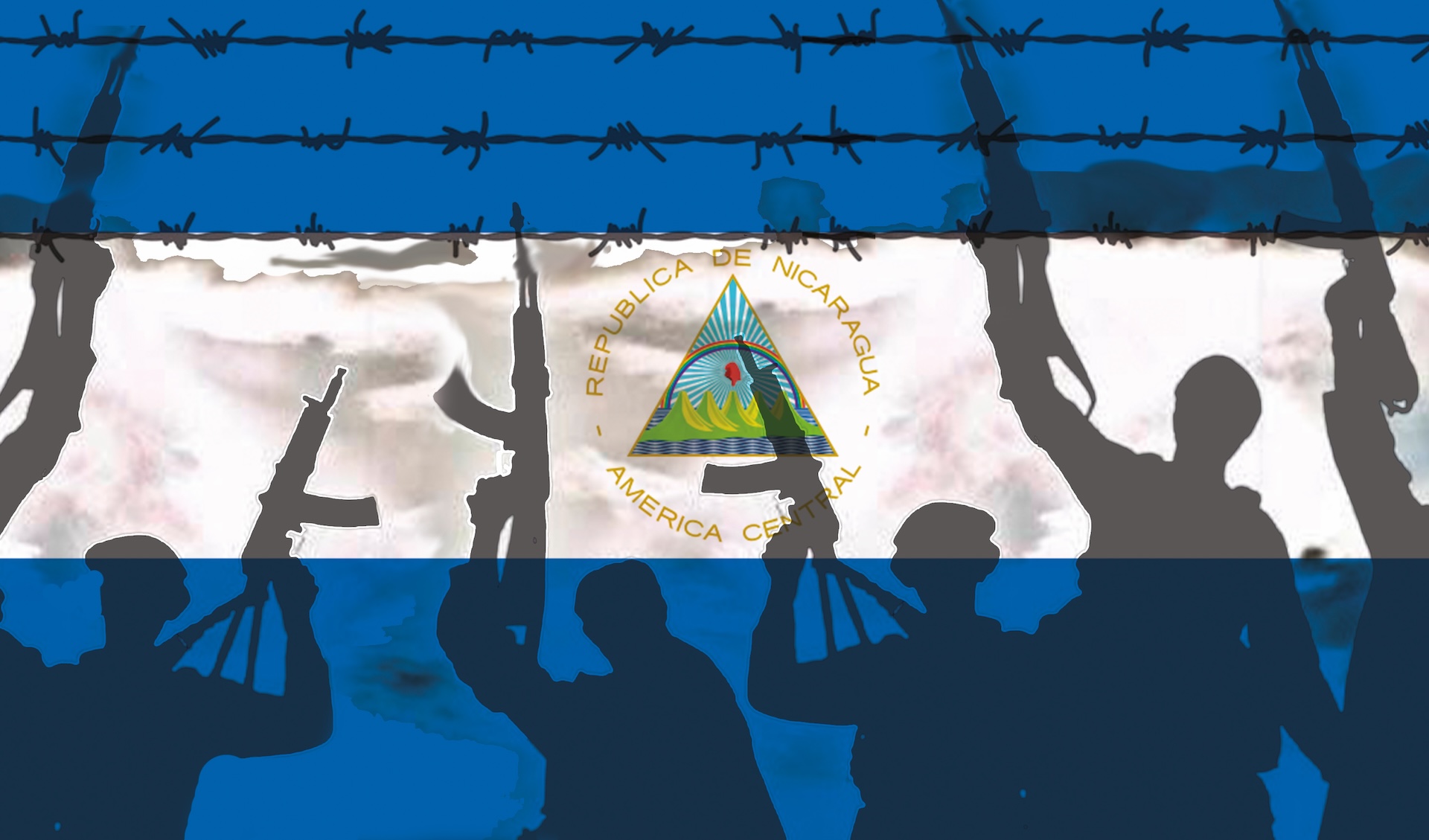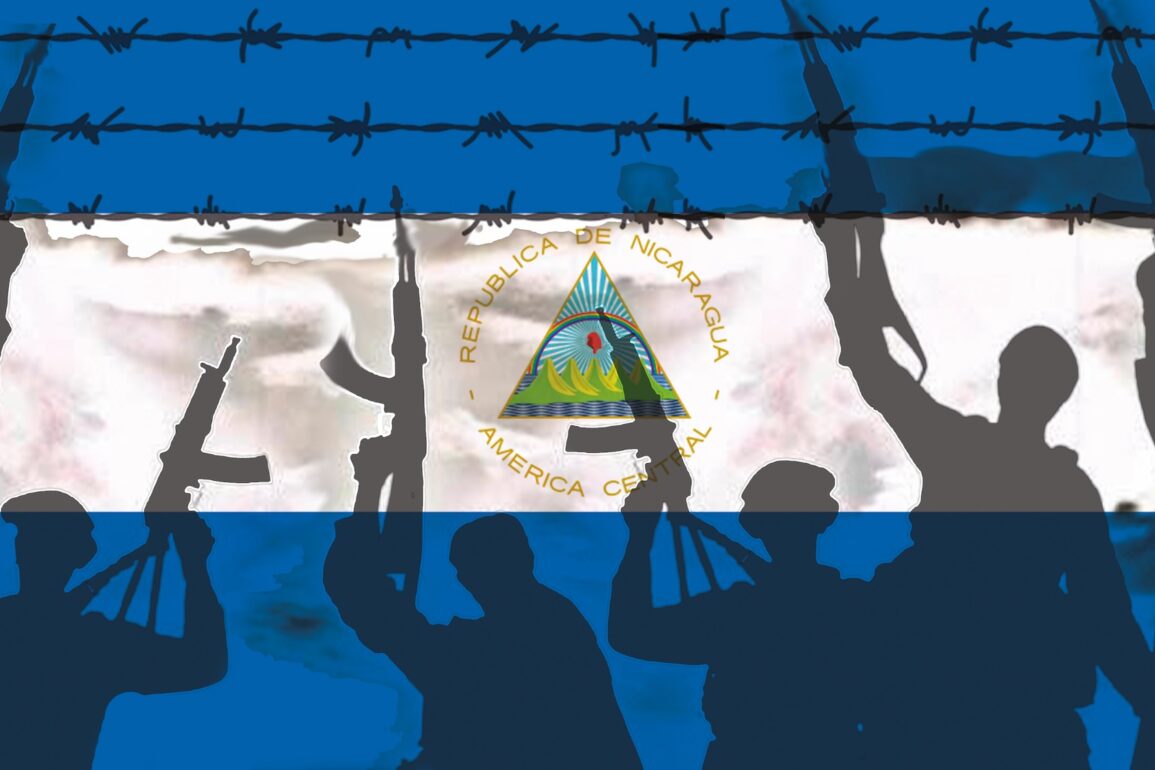
While the Daniel Ortega-Rosario Murillo regime persecutes, criminalizes, and extradites its opponents, it offers its allies (former officials accused of corruption, narcotrafficking, or terrorism) personal protection and refuge as bargaining chips, Enrique Martínez, Nicaraguan student leader and member of the Unity Platform for Democracy and the AVANZA political movement, told Diálogo on October 12.
“Daniel Ortega could be connected, to avoid dismantling or revealing involvement in corrupt networks of money laundering, organized crime, contraband, and narcotrafficking at the government level, which operate throughout Central America and ties in all these officials,” Martínez said. “This would be a force majeure reason to protect these bureaucrats who, even with high pressures from narcotraffickers to keep this illicit enrichment network active, give oxygen to the Ortega-Murillo and the entire structure of the Sandinista National Liberation Front [FSLN] to stay in power. This would be one of their main earnings.”
The most recent case is that of Óscar Chinchilla, Honduras’ former attorney general under investigation for corruption, who arrived in Nicaragua on September 3. Chinchilla is being investigated by the Honduran Legislative Assembly to determine why he decided not to fight high impact cases linked to corruption and narcotrafficking, Honduran investigative magazine Contra Corriente reported.
“This old Sandinista practice uses the excuse of political solidarity to shelter its criminal allies, when in practice it is a huge business for the FSLN,” Félix Maradiaga, president of the Foundation for Nicaraguan Freedom and former presidential candidate, told Diálogo on October 10. “For years it has been a known fact that those close to Daniel Ortega, such as Lenin Cerna and Néstor Moncada Lau, among others, do big business with Nicaraguan passports. I see an opportunistic act and an illicit business, more than a decision of ideological affinity.”
If one looks among those accused of corruption, the name of Salvador Sánchez Cerén, former president of El Salvador and former commander of the leftist Farabundo Martí National Liberation Front party and historical ally of the FSLN, stands out. Sánchez Cerén and his family received Nicaraguan nationality, a few days after being accused of money laundering and illicit enrichment, France 24 reported.
“The Nicaraguan government gives refuge to ideological, political, and economic allies. It could be understood as a payment of favors,” Eduardo Escobar, a lawyer and executive director of Acción Ciudadana, a Guatemalan organization specializing in social oversight, told Diálogo. “He gains loyalty from these actors or parties, because let’s remember that behind these people there are political parties and they maintain that alliance or unity with those parties.”
Just like Sánchez Cerén, the Ortega-Murillo family protects other ex-officials with naturalization, since Nicaraguans cannot be extradited from the national territory, according to Article 43 of the Constitution of the Republic. Neither is there the possibility of extraditing them for common or political crimes.
But Ortega did request the extradition of two opposition Nicaraguans exiled in Costa Rica. Both expressed fear of being tortured and even executed in Nicaragua. According to Central American think tank Expediente Público, the regime takes advantage of the criminal justice system to create accusations of all kinds against its opponents, including organized crime, terrorism, and money laundering.
“It is paradoxical that while the Ortega-Murillo regime strips the nationality of many Nicaraguans who have dedicated their lives to defending the rule of law, something as sacred as citizenship is granted to people clearly labeled as criminals,” Maradiaga said. “It is greatly irresponsible of that regime, but it is also an unmistakable sign that Ortega is not only a problem for Nicaraguans, but also a threat to the security of the region.”
For Graco Pérez, a Honduran specialist in international law, the Ortega-Murillo regime receives money from narcotrafficking or corruption, due to the precarious economic situation they are going through.
“It is in the interest of the Nicaraguan regime that these resources enter the country, that is why these characters see it as a paradise where they can avoid laws, “ Pérez told Honduran investigative news site Criterio. “And you know what the deal is. Once there, no one is going to ask them about the origin of their resources. It is different from having the money in countries where there is a degree of control that, for any atypical movement, they are obliged to investigate.”
The Nicaraguan University Alliance (AUN) told Bloomberg that the Ortega-Murillo regime turned Nicaragua into a refuge for drug traffickers, corrupt people, and other criminals against humanity.
“None of the cases in which refuge and nationality were granted have sustainable arguments to justify the decision,” Mártinez. “This would be a breakthrough, to analyze each case, evaluate the treaties, to find a way that would allow the countries seeking justice for these people to give a solution to the internal processes of each country.”
Through a September 19 letter, AUN requested the support of U.S. congressmen to document human rights violations and push for more sanctions against the Nicaraguan regime, which is sustained by narco-corruption, manipulation of the judiciary and legislature, police violence, and military complicity.
This post was originally published on this site be sure to check out more of their content.







